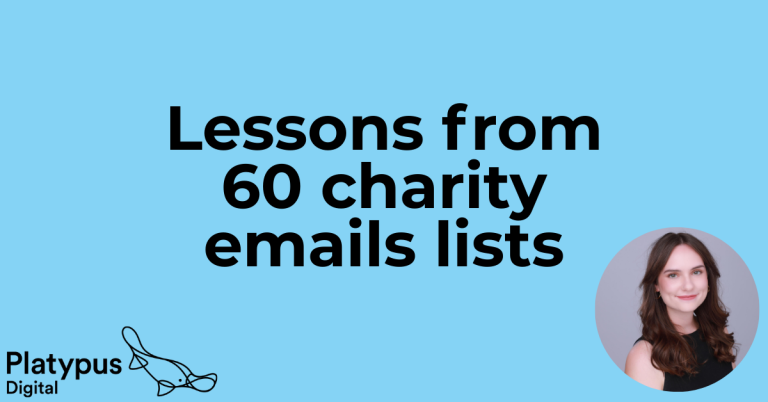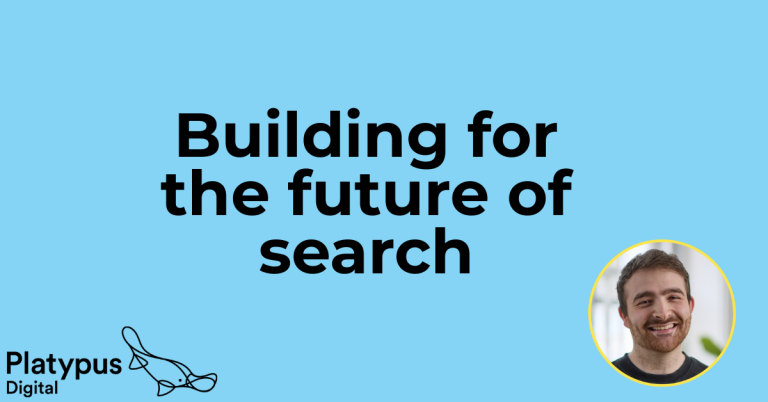At Platypus, we want to be as fair as possible when recruiting new team members.
We have written previously about our anonymous recruitment process in our efforts to remove some of the bias from our hiring.
We recently met with other agencies working in the charity sector to share ideas and experiences of working towards a fairer environment for everyone. Here’s what we came up with for future recruitment.
Before you recruit
Advertise in different places.
There are specific networks, such as Tech Returners, that work in communities that won’t be reached by an advert in The Guardian or on Charity Comms.
In this specific case, this would reach people returning to work after an absence, which can help parents and those who have had ill health.
Read up on anonymous recruitment
Read this Fearless Futures post on anonymous recruiting – and think about why you might need to anonymise your process. What biases or prejudices already exist in your working culture?
Consider paid internships via Collaborative Future
Make sure these are paid at least the real living wage or London living wage. Opportunities to join your organisation should not rely on wealthy parents or geography. You can also check your local area for any internship networks, opening up to applicants that can’t or don’t want to commute.
Act as mentors to different groups
Organisations such as the Social Mobility Foundation are experts at reaching under-represented groups and communities.
Use an HR platform to track responses
These platforms (such as Fresh Team) help you to manage recruitment and onboarding via your website.
This will allow you to track applications thoroughly and identify any possible points in the process where candidates are dropping off. Are they reaching interview and finding the interview process inhospitable to their needs?
Make a plan for when you do want to recruit.
This may involve engaging with senior team members to sign off costs for new network outreach, or software to check your job ads before they go live.
Build up your networks before the vacancy arises
Actively seek out opportunities to talk to different people.
We were as guilty as anyone of relying on friends and friends-of-friends to find freelancers in the past.
We have now committed to widening our reach as an agency to ensure we’re not just continuing to act in an echo chamber.
Reach out to people on LinkedIn whose skills match the role and encourage them to apply
This gives you access to people who would not usually see a job ad. Be proactive.

The application process
Give your recruitment agencies a specific brief
If you work with them, ask the recruiters to go to groups you would not normally receive applications from.
Don’t ask for CVs
Structure the application and shortlisting criteria around skills and values, rather than qualifications and previous experience. Ask candidates to answer skills-based questions in their application.
Review your questions and assessment process to reduce cultural bias
It may be a good idea to have a third-party do this.
Advertise in local community networks, close to the office
Not everyone has the physical capacity to commute, or there may be financial reasons that a season ticket is out of the question.
Offer video applications
This is helpful for candidates less able or happy to submit written applications.
Show the salary
We hope it goes without saying, but show the salary for the role.
And do not set academic restrictions on roles, like requiring a degree unnecessarily.

The interview process
Share the questions with the candidates ahead of the interview
This gives the applicants time to prepare, and means those candidates who may struggle with responding in real-time have a fair chance to show their best side. It also makes things less awkward generally, so benefits the interviewers as well.
Offer early and late slots where you can
There may well be work or caring commitments that make people less available in the day.
Offer video calls if possible
Do not automatically expect people to travel to the interview. This is especially helpful for candidates with disabilities or chronic illness.
Structure your questions around skills and values
Think about what qualities are needed in the role, rather than how many years of experience or whether they went to university.
Pay candidates for their time if there are specific tests of their skills
Some interview processes take many rounds, and not everyone can use a lot of time for free.
Create a structured scoring system
This can help you to avoid employing people basing your judgement on whether someone is a ‘good fit’.
Discuss everything post-interview with a facilitator
That way, you’re less likely to let unconscious bias influence your interview panel.





